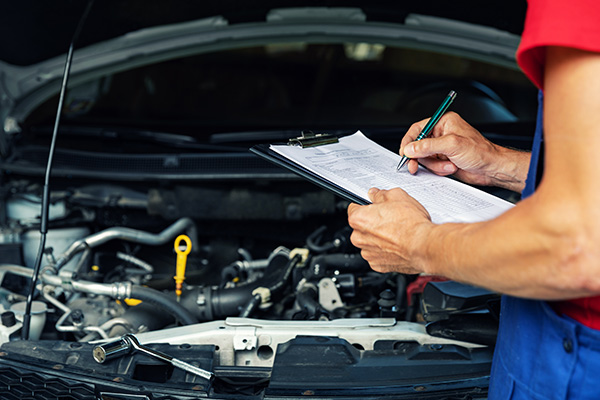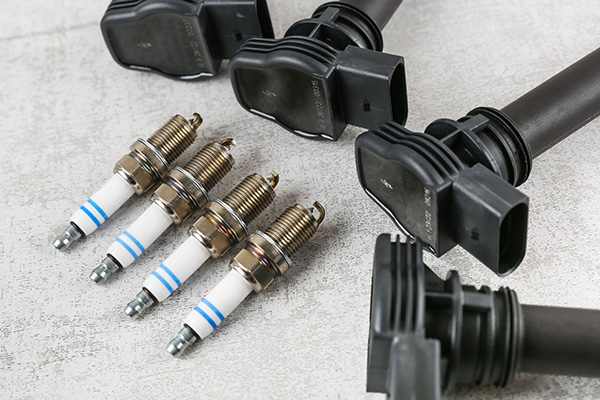Posted on 9/30/2024

Oil leaks can be a headache for car owners, leading to bigger problems if left untreated. Whether you’ve noticed a few drops of oil under your car or are concerned about your oil level dropping too quickly, it’s important to understand the root causes of oil leaks. Not only can oil leaks harm your engine’s performance, but they can also make your vehicle unsafe to drive in the long term. So, what are the most common causes of oil leaks in cars? 1. Worn Out Gaskets and Seals The gaskets and seals in your engine are designed to keep oil contained and flowing to the necessary parts of the engine. Over time, these gaskets and seals can wear out due to heat, pressure, and the natural breakdown of materials. One of the most common culprits is the valve cover gasket. The valve cover sits at the top of the engine and is responsible for sealing the oil within ... read more
Posted on 8/27/2024

Electric vehicles (EVs) have transformed the auto industry, impacting everything from manufacturing to consumer preferences. Although EVs were once considered niche products for the environmentally conscious, they have now become mainstream. Consumers are increasingly choosing these innovative vehicles for their eco-friendly features, advanced technology, and lower operating costs. As the transition to electric power accelerates, it's important to understand how this shift is fundamentally changing the auto industry. 1. The Rise of Electric Mobility One of the most significant impacts of EVs is the way they've changed what consumers expect from their cars. In the past, purchasing decisions were often based on brand loyalty, fuel efficiency, or horsepower. Today, consumers are looking at range, battery life, and charging options. EVs provide a modern appeal, with buyers drawn to the idea of owning cutting-edge technology while reducing their ... read more
Posted on 7/29/2024

Ensuring road safety is a critical concern for any state, and Virginia is no exception. One of the primary ways Virginia maintains high safety standards is through its rigorous state inspection program. If you've ever wondered how these inspections impact your daily commute or why they're necessary, you're in the right place. We will explain how Virginia's state inspection enhances road safety and why it matters to every driver on the road. The Purpose of Virginia's State Inspection Virginia's state inspection program aims to ensure that all vehicles on the road meet minimum safety standards. This program is designed to catch potential issues before they become serious problems, thereby reducing the likelihood of accidents caused by mechanical failures. Regular inspections help maintain the integrity of vehicles, ensuring they are safe for both the driver and other road users. Key Components of the ... read more
Posted on 5/30/2024

When it comes to car maintenance, brake fluid flushes might not be the first thing that comes to mind. However, this essential service is crucial for the safety and performance of your vehicle. Understanding when and why you need a brake fluid flush can keep your car stops and ensure your braking system is always in top condition. So, how often does your car need a brake fluid flush? Understanding the Importance of Brake Fluid Brake fluid is essential in the overall function of your braking system. It is hygroscopic, meaning it absorbs moisture from the air. This moisture can lower the boiling point of the brake fluid, leading to decreased braking performance and increased risk of brake failure. Regularly flushing and replacing the brake fluid ensures that your brakes remain responsive and effective, especially in emergency situations. Manufacturer Recommendations Most car manufacturers have specific recommendati ... read more
Posted on 4/29/2024

Spark plugs and ignition coils play pivotal roles in the intricate machinery of your vehicle's engine, ensuring smooth operation and efficient combustion. We'll examine the fundamentals of spark plugs and ignition coils, explore how they function in tandem, and discuss how to recognize common issues associated with them. What is a Spark Plug? A spark plug is a small but essential component of your vehicle's ignition system. It is responsible for generating the spark needed to ignite the air-fuel mixture in the combustion chamber. Spark plugs consist of a metal shell, an insulator, and a central electrode, which conducts electricity from the ignition coil to produce the spark. This spark initiates combustion, powering your engine and propelling your vehicle forward. What is an Ignition Coil? An ignition co ... read more